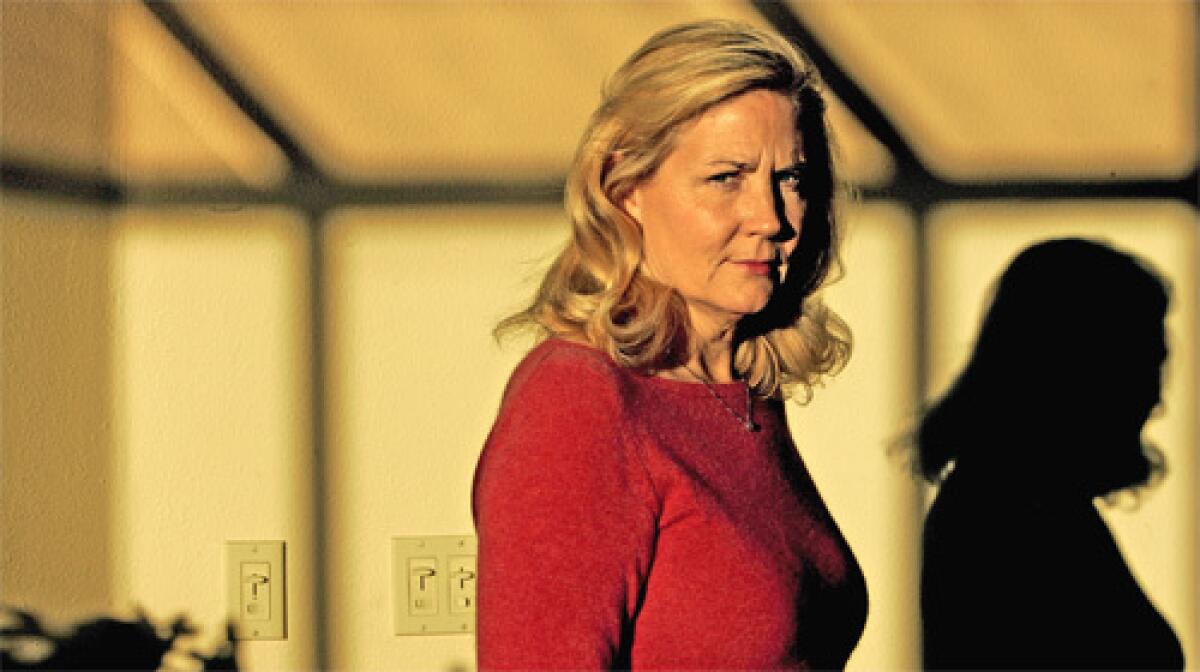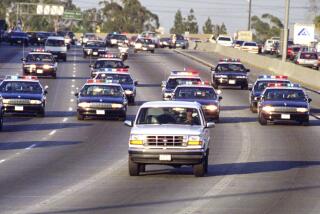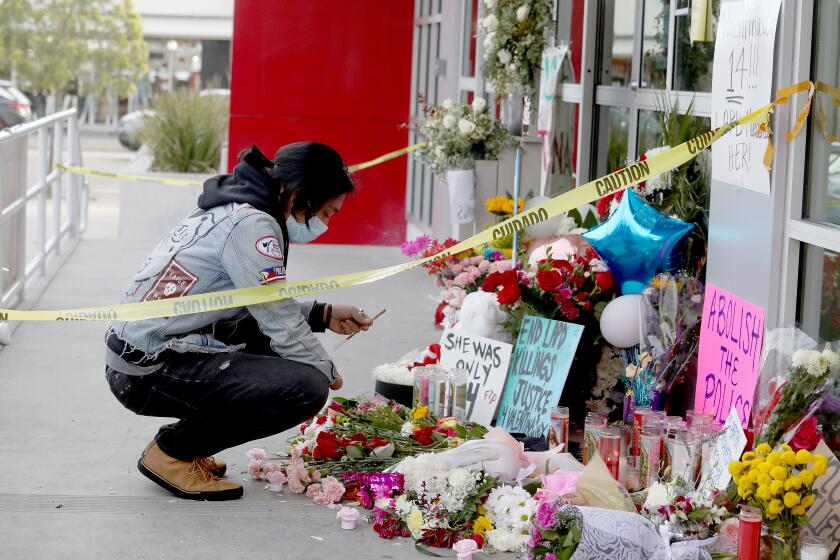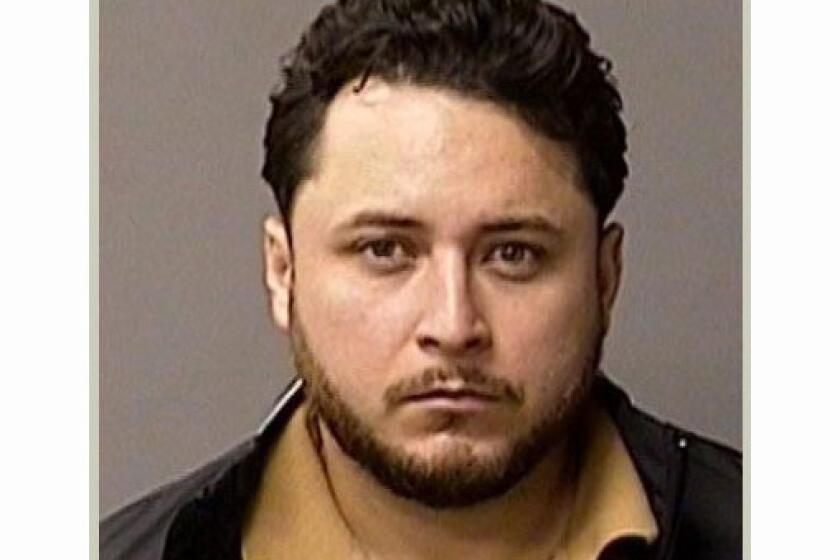Still her husband’s voice

In the 26 years since former Black Panther Mumia Abu-Jamal gunned down her cop husband on a Philadelphia street, Maureen Faulkner has often felt like a reed in a tornado.
As death penalty opponents around the world rallied to win Abu-Jamal a new trial, contending that he had been framed by local police, Faulkner quietly fought back one hearing at a time.
She never missed a court hearing through the long appeals process, even after she moved from Philadelphia to suburban Ventura County. She’s appeared at pro-Mumia events, handing out fliers to explain the evidence that led a jury to convict and sentence Abu-Jamal to death.
Now, with a new book that presents her view of what she believes is the misguided support that has made her husband’s killer a global cause celebre, Faulkner, 51, says she is determined to remain the voice of her late husband, Danny.
“Here’s a man who murdered another man with premeditation and malice. Why does he have a voice?” asked Faulkner, calm and articulate, from the sun-filled dining room of her hilltop home north of Los Angeles. “My husband has been silenced.”
Jeff Mackler, a national coordinator of the Mobilization to Free Mumia Abu-Jamal, said he hadn’t yet read Faulkner’s book but planned to do so. What happened to her husband is a “terrible tragedy,” Mackler said.
“But it’s an equally terrible tragedy that an innocent man is going to be executed in the name of satisfying her grief.”
To Faulkner, “Murdered by Mumia: A Life Sentence of Loss, Pain, and Injustice” is a way of countering misinformation that Abu-Jamal’s supporters have distributed in a campaign to free him, or at least to win him a new trial.
But it’s also a look at a woman who decided to honor her late husband by not running away from the controversy.
The Faulkners had been married a year when she got “the knock” in the middle of the night Dec. 9, 1981. Faulkner was a five-year veteran of the Philadelphia Police Department.
“With his shiny adornments glistening against the dark night, I thought maybe I was dreaming,” Faulkner writes of the officer who stood outside her door that night. “My heart pounded furiously against my rib cage, and my knees felt weak as I opened the door.”
It was the beginning of a new life that would take Faulkner from Philadelphia to California and cast her as the living symbol of her dead husband.
“I don’t want people to think I’m angry, because I’m not. I’ve moved on in my life,” said Faulkner, who has lived with her companion, Paul Palkovic, for 16 years.
“But there’s just something inside of me that says I have to seek justice for Danny.”
Faulkner’s book covers the well-established events of that night. Her husband, a patrolman in the city’s red-light district, stopped Billy Cook, Abu-Jamal’s brother, for a traffic infraction. Cook punched Faulkner, and the two started to scuffle.
Abu-Jamal, who was driving a taxicab that night, saw the confrontation from across the street and leaped from his cab to intervene.
Several shots were fired, and police moments later found Faulkner face-up on the sidewalk with bullets in his back and forehead. Abu-Jamal had also been wounded and was taken to a hospital for surgery. After recovering, he was ordered to stand trial on a charge of first-degree murder.
Prosecutors produced four witnesses who said Abu-Jamal had fired on Faulkner as he approached and then straddled the officer to fire several more rounds.
Ballistics evidence tied the bullets to Abu-Jamal’s gun, which was found beside him when police arrived.
A bullet from Faulkner’s service revolver was recovered from Abu-Jamal’s chest. Abu-Jamal did not testify at the trial, nor did his brother. A jury found him guilty and imposed the death sentence.
Maureen Faulkner, then 25, thought that was the end of her nightmare. In 1983, she moved to California, eager to get away from the trauma and to start a new life.
“My friends were married and having children,” she said. “I was pretty much alone.”
But she was pulled back repeatedly to Philadelphia and that cold December night.
A nascent “Free Mumia” movement picked up steam in 1995 with the publication of Abu-Jamal’s first book, “Live From Death Row.” A radio reporter before his arrest, he was articulate, charming and a prodigious writer.
He was frequently invited to contribute to respected publications, and with each one, support to free him grew.
In 1995, dozens of celebrities, including Mike Farrell, Salman Rushdie, Susan Sarandon and Paul Newman, paid for a full-page ad in the New York Times laying out a case for a new trial.
The next year, a British-made documentary, “Mumia Abu-Jamal: A Case for Reasonable Doubt?,” aired on HBO. Abu-Jamal was invited to appear, via audiotape, at college commencements.
Each time, Maureen Faulkner responded. She would call the publisher and ask if they knew they were supporting a convicted cop killer. She and Palkovic flew to events at which Abu-Jamal’s case was being made before students, and they would sit in the front row.
They handed out brochures, watching as some supporters torched the papers in front of them. Faulkner said she’s been spit on and has received threatening phone calls. For that reason, she’s reluctant to specify the city where she lives or other aspects of her life.
During a December book tour, Faulkner said, she was flooded with support from people who urged her to continue the fight. The book has sold about 70,000 copies and is in its third printing, said Khuong Phan, a spokesman for the publisher, Globe Pequot Press.
Faulkner, meanwhile, is waiting for the latest twist in a long appeals process.
In 2001, a federal judge upheld Abu-Jamal’s conviction but threw out his death sentence, saying the jury had been improperly instructed.
Both sides appealed and are waiting a decision on whether Abu-Jamal should be granted a new sentencing hearing -- or even a new trial.
Faulkner, who took an early retirement from work in a medical office, says she isn’t looking forward to another round of court hearings.
But she said she would be there.
catherine.saillant@latimes.com
More to Read
Start your day right
Sign up for Essential California for news, features and recommendations from the L.A. Times and beyond in your inbox six days a week.
You may occasionally receive promotional content from the Los Angeles Times.







